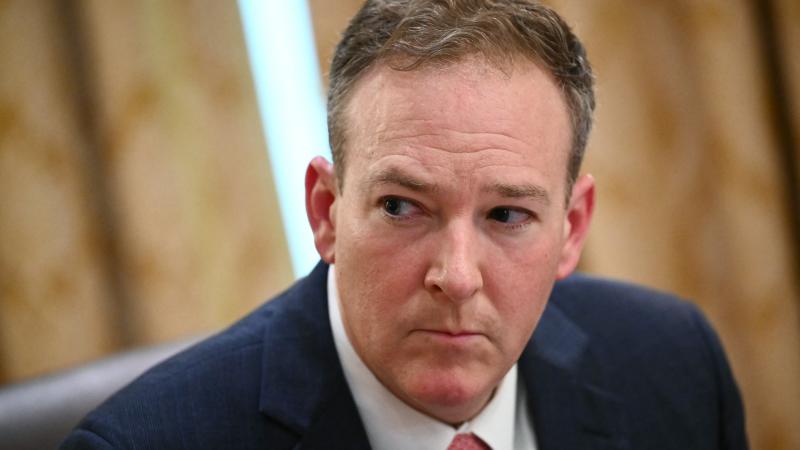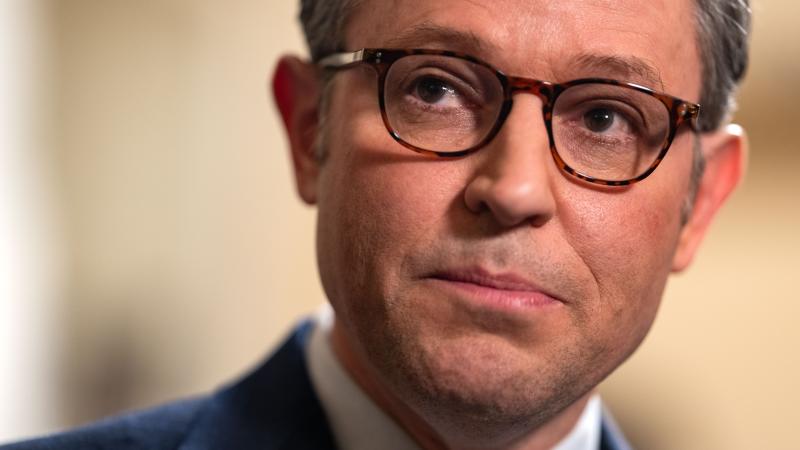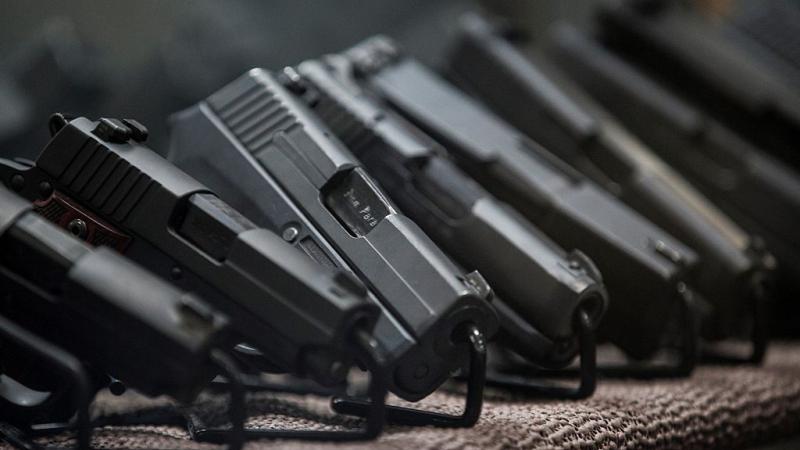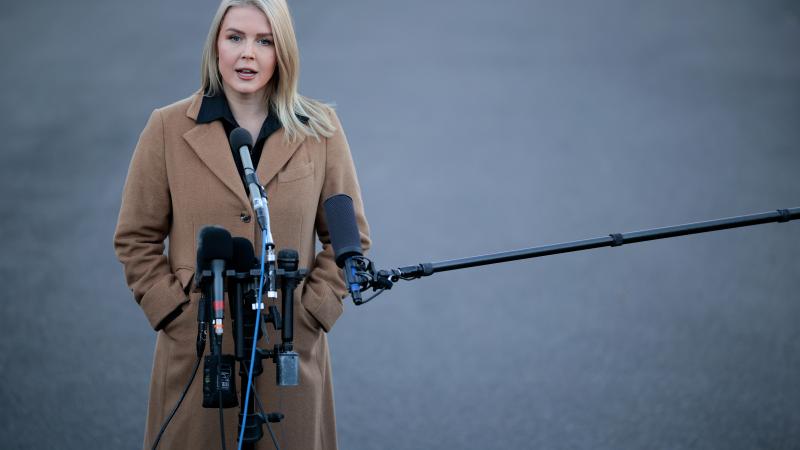'Dehumanizing': Experts rip California pilot program testing COVID-sniffing dogs on schoolchildren
Faster, cheaper and more environmentally friendly than antigen tests, public health official says, but high false positive rate. "May be traumatizing" for some kids, doctor warns.
The California Department of Public Health (CDPH) wants to bring airport screening procedures to public schools in the Golden State — not to search for weapons, narcotics or explosion-prone batteries, but for an endemic virus that poses little risk to children.
Researchers affiliated with the department and Kaiser Permanente shared the results of their dog-sniffing pilot program to detect COVID-19 in 27 unnamed "volunteer schools" in the Journal of the American Medical Association Pediatrics Monday.
The screenings may raise civil liberties and medical privacy concerns, according to California doctors who reviewed the research and questioned the tangible benefit of COVID screenings in 2023 versus the risks of routine, compelled interactions with canines.
The paper also illustrates the growing divergence between the U.S. and the rest of the world on managing COVID infections.
The U.K. National Health Service Thursday shuttered its COVID track-and-trace app, with 31 million downloads and nearly 2 million resulting self-isolations, "after months of declining use," the Evening Standard reported. The government credited high immunity and vaccinations and better access to treatments.
Brown University's Pandemic Center and Center for Mobility Analysis for Pandemic Prevention Strategies, by contrast, is hosting a seminar Friday on "digital contact tracing systems to better prepare ourselves for the next pandemic."
CDPH sponsors an "effective" statewide antigen testing program that nonetheless "requires personnel, testing resources, and sample collection and generates medical waste," the JAMA Pediatrics paper says. "Scent-trained dogs are a strategy for rapid, noninvasive, low-cost, and environmentally responsible COVID-19 screening."
The pooches' ability to consistently identify infected students and staff was underwhelming, however. They reported false positives more than four times as often (383) as they "accurately signaled" infections (85) based on nearly 4,000 "paired" antigen screenings. The false negative rate was much lower: 18 missed infections, compared to 3,411 confirmed negatives.
The research has a federal connection. The CDC Foundation, created by Congress but independent of the agency, "provided funding to Early Alert Canines for the purchase and care of the 2 dogs trained, to support the handlers and trainers, and for other expenses," the paper's disclosures state.
Two of the authors appeared on the CDC Foundation podcast Contagious Conversations last summer. Carol Glaser, assistant deputy director in the Office of the State Public Health Laboratory Director, praised the pilot for taking away less time from teachers and exempting children from "that invasive nasal swab" while reducing plastic waste from tests. The students and staff "absolutely love the dogs," she said.
"During the pandemic, I never had to asymptomatically test even during hospital work," University of California, San Francisco epidemiologist Vinay Prasad wrote in his newsletter Monday. "No dog ever smelled me."
When future generations look at the infection fatality rate, "they may think we are actually insane," he added, calling the pilot "dehumanizing" to kids.
Stanford University health policy professor Jay Bhattacharya, who emphasizes the "thousand-fold" difference in COVID mortality between elderly and young, told Just the News the study reminded him of a "smart toilet" proposal by Stanford radiology and urology faculty to individually identify infected people through bowel movements in public places.
"I do not think it is a good idea that passing a dog’s sniff test should be a precondition for people to participate in their regular activities, especially children," he wrote in an email, which "may be traumatizing for some and certainly a violation of basic civil rights in many cases."
The study appears to be popular, however, with scientists who favor ongoing COVID mitigation regardless of near-universal natural and vaccine-acquired immunity. "Imagine this at all schools and work places!" Queens University emeritus professor of infectious diseases Dick Zoutman tweeted. "What a great way to start your day!"
CDPH and Kaiser Permanente researchers said the dogs went through two months of scent training to achieve "greater than 95% sensitivity and specificity for detection of the virus" and were then sent on 50 school visits in April and May 2022. They sniffed more than 1,500 participants, 89% of them students.
Participants were spaced six feet apart and handlers led the dogs to sniff their ankles and feet for "volatile organic compounds." Dogs would sit if they detected infection, though "participants faced away from the dogs" to protect confidentiality. Testing only took "a matter of seconds."
The sensitivity and specificity percentages fell compared to lab results, which the researchers blamed on factors including noise, wind and smells. The study was limited by "the low prevalence of SARS-CoV-2 during the study period."
The goal is to launch "large-scale" dog-sniffing confirmed by antigen testing only on initial positives, which researchers expect will reduce antigen testing by 85%. Once "modifications" are made, the program can be rolled out widely for COVID but also other pathogens.
The paper has drawn only one formal response. University of Southern California dermatologist Binh Ngo noted the references "do not characterize the volatile organic compounds emitted by the skin surface of Covid infected individuals," specify whether the compounds are COVID-specific or detail "the time and cost to train a dog to the necessary level to perform these examinations."
UCSF's Prasad questioned whether the sniff-screenings could really be confidential. If the dog sits down by a child, even classmates facing away "will still know ... kids will look around" and notice when someone disappears from school during the day.
"I think for the purpose it was intended — to screen kids so that the pretest probability was higher before they conducted a more accurate antigen test — it's a moderate success," Stanford's Bhattacharya told Just the News. "But that's a very narrow standard to judge."
The "marginal benefit" of scaling up in the midst of high immunity "is very low," and "zero-covid policies to stop disease spread at all costs do not make sense," the Great Barrington Declaration coauthor said.
CDPH and corresponding author Glaser did not respond to Just the News queries. The California Department of Education directed Just the News to CDPH and did not answer what involvement if any it would have with a broader program.
The CDC Foundation emphasized to Just the News the project started in fall 2021, "when we were still learning more about this virus," and ended last fall. The dogs have a track record with detecting other diseases and offer "a more rapid, less invasive, lower-cost option" than antigen tests.
"Importantly, this program adds to the knowledge base for alternative testing for future emergency responses or virus detection," it said, without answering what benefit it offers against steadily less dangerous COVID variants to a low-risk population that can get vaccinated and boosted.
The Facts Inside Our Reporter's Notebook
Videos
Links
- Journal of the American Medical Association Pediatrics
- Evening Standard
- Contagious Conversations last summer
- Vinay Prasad wrote in his newsletter
- "thousand-fold" difference in COVID mortality
- "smart toilet" proposal by Stanford radiology and urology faculty
- Dick Zoutman tweeted
- one formal response
- Great Barrington Declaration
















